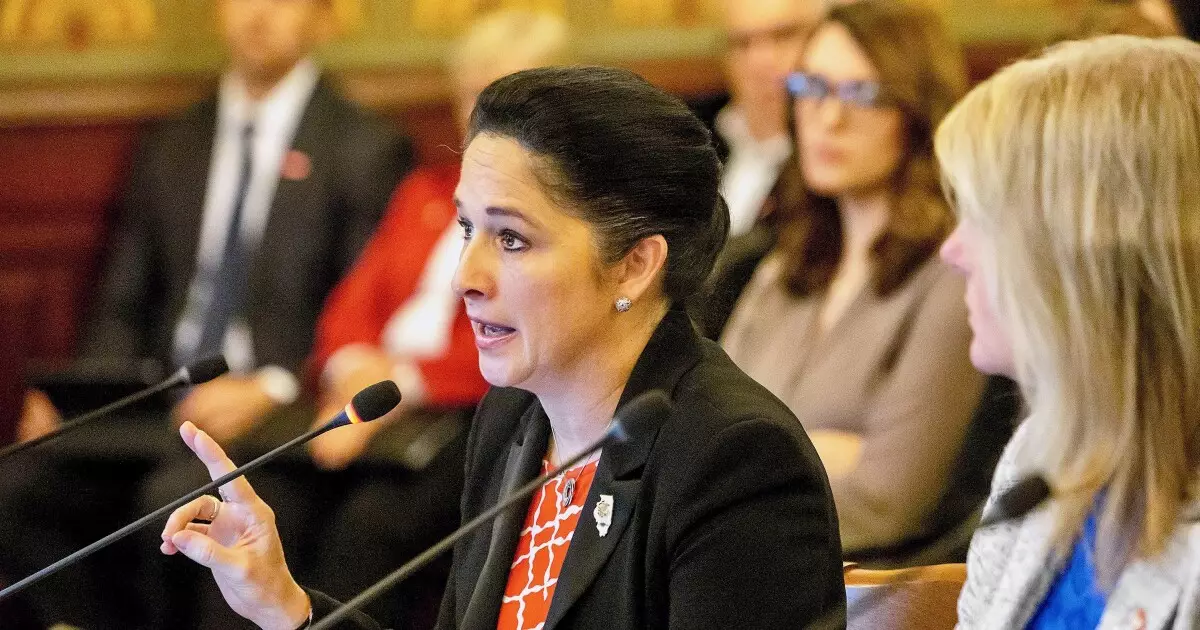The recent report from the Illinois state comptroller showcases a significant improvement in the end-of-year general revenue fund cash balance. This increase of 55% year-over-year indicates a positive shift in the state’s financial management. In the past, Illinois struggled with unpaid bill backlogs that reached over $10 billion, presenting a severe challenge for the state’s financial stability.
State Comptroller Susana Mendoza revealed that Illinois closed the fiscal year with a $1.7 billion balance in the general revenue fund, a substantial increase from the previous year’s $1.1 billion balance. This positive outcome is a result of timely bill payments and effective financial planning. The state’s financial status has certainly improved compared to the past decade when unpaid bills accumulated to alarming levels, creating instability and uncertainty in Illinois’ financial future.
When Comptroller Mendoza assumed office in late 2016, she inherited a staggering $15 billion backlog of unpaid bills. Over the years, with the administration of Governor J.B. Pritzker, significant progress has been made in reducing this backlog and strengthening the state’s financial reserves. The commitment of the current administration, the General Assembly, and the comptroller’s office has been pivotal in achieving this turnaround.
The positive financial trajectory of Illinois has been acknowledged by major rating agencies such as Moody’s Ratings, S&P Global Ratings, Fitch Ratings, and Kroll Bond Rating Agency. These agencies have revised Illinois’ outlook and ratings, reflecting the state’s improved financial management and budgetary discipline. The state’s ability to pay down liabilities, increase budgetary reserves, and improve structural budget alignment has been credited for this positive credit trajectory.
Continued Challenges and Proposed Solutions
Despite the progress made, Illinois still faces challenges related to underfunded pension systems and lingering liabilities. The proposed change by Governor Pritzker’s administration to raise funding levels for pension systems did not materialize in the final fiscal 2025 budget. Comptroller Mendoza has advocated for additional payments into the state pension systems and the rainy-day fund to address these challenges effectively.
Legislative Proposals for Financial Stability
Comptroller Mendoza has introduced a bill to establish automatic monthly transfers into the state’s budget stabilization fund and pension stabilization fund under specific conditions. This proactive approach aims to ensure financial stability and address the state’s bill backlog effectively. By leveraging new laws that permit the comptroller’s office to make extra payments into pension systems, Illinois aims to strengthen its financial footing and mitigate pension shortfalls in the long run.
The financial progress showcased by Illinois in recent years is a testament to the concerted efforts of state leadership and financial authorities. By prioritizing timely bill payments, building up financial reserves, and implementing strategic financial planning, Illinois has managed to improve its credit ratings and outlook. Continued efforts to address pension underfunding and financial challenges will be crucial in sustaining this positive trajectory and ensuring long-term financial stability for the state.

